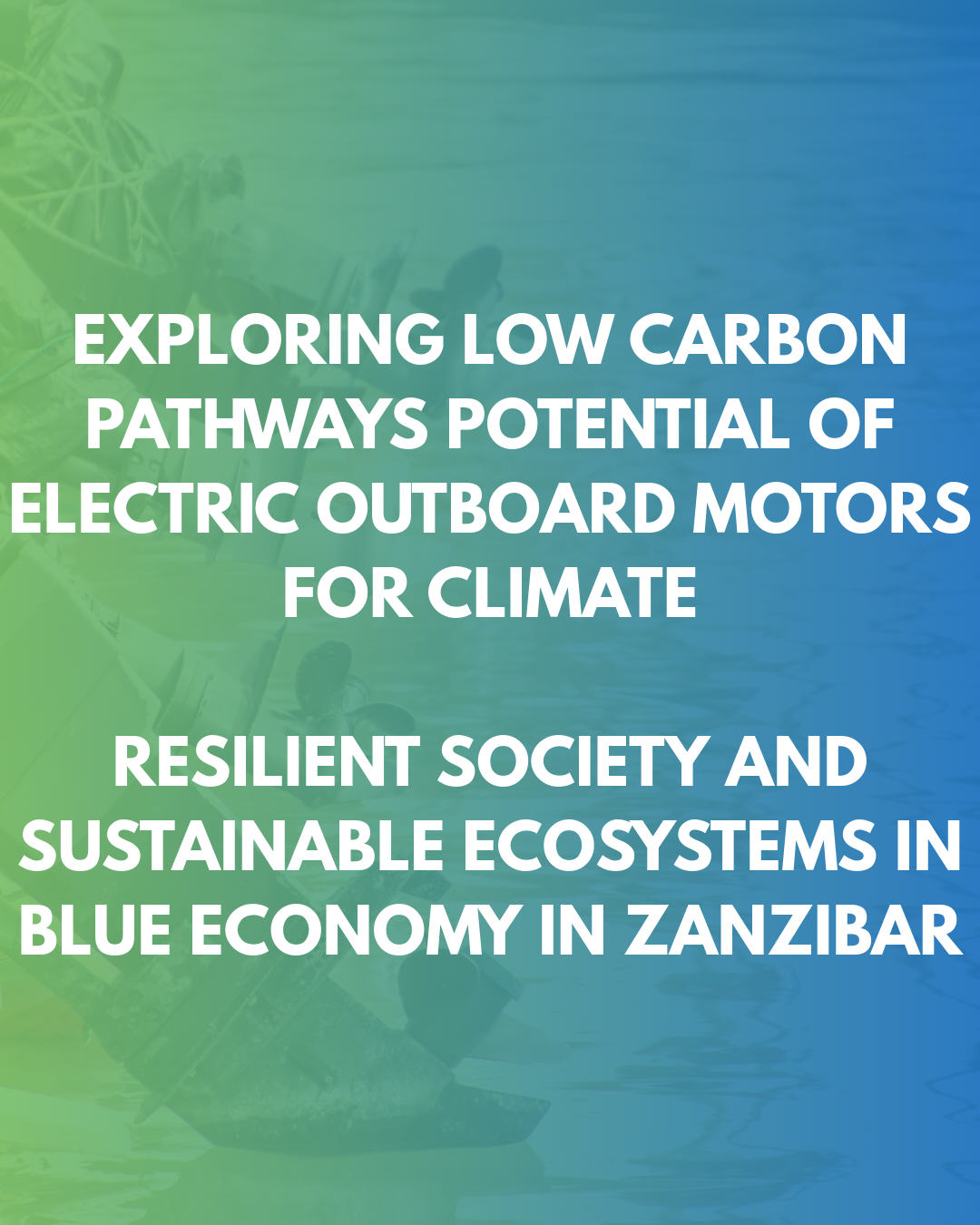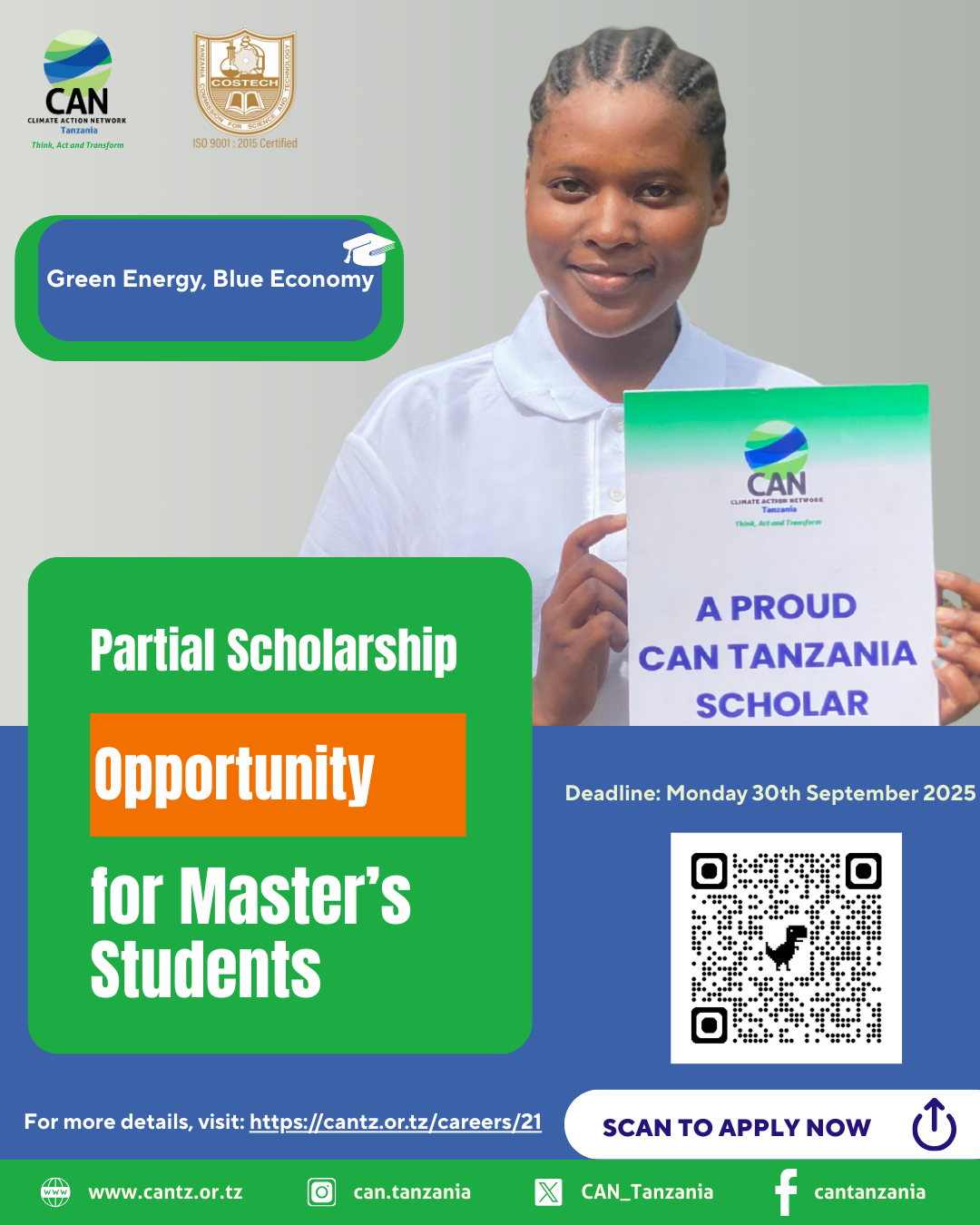Exploring Low Carbon Pathways Potential of Electric Outboard Motors for Climate Resilient Society and Sustainable Ecosystems in Blue Economy in Zanzibar

The rapid growth of the Blue Economy in Zanzibar offers both opportunities and challenges for sustainable development. Coastal communities rely heavily on marine resources for fishing, transportation, and tourism; yet, these activities are increasingly threatened by climate change, environmental degradation, and rising fuel costs. Traditional fossil-fuel-powered outboard motors, widely used by fishers and boat operators, contribute to greenhouse gas emissions, marine pollution, and high operational expenses. There is an urgent need to explore innovative, low-carbon solutions that safeguard marine ecosystems while strengthening community resilience. The electric outboard motors lack data on their environmental impact and its socio-economic benefits, particularly in the context of marine transport and tourism operations.
The Green Energy – Blue Economy (GeBe) Research Project responds to this need by exploring the potential of electric outboard motors as a sustainable alternative for Zanzibar’s coastal and marine sectors. By investigating the technical, economic, and ecological viability of electric motors, the project aims to identify low-carbon pathways that reduce emissions, protect fragile ecosystems such as coral reefs, and support climate-resilient livelihoods. This initiative is positioned at the intersection of green energy innovation and sustainable ocean management, reflecting Zanzibar’s commitment to building a resilient, inclusive, and future-ready Blue Economy.
Through research, stakeholder engagement, and pilot testing, the GeBe project seeks to generate evidence that informs policy, investment, and community action. The project will assess environmental benefits, cost-effectiveness, and social impacts of adopting electric motors while fostering partnerships among government, academia, the private sector, and local communities. Ultimately, the initiative aims to demonstrate that green energy solutions are not only viable but also essential for achieving sustainable development goals, enhancing climate resilience, and ensuring that Zanzibar’s Blue Economy thrives in harmony with people and nature.

